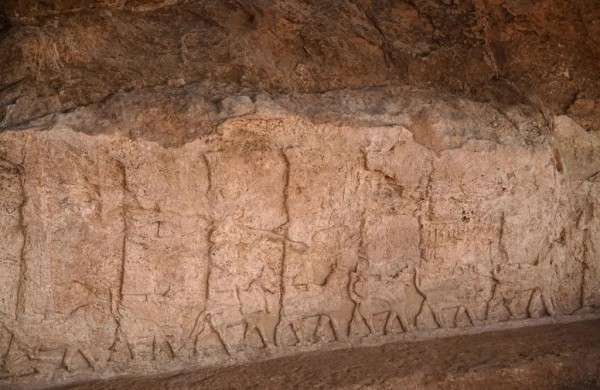
A carved plaque lining an ancient irrigation canal dating back to the time of the Assyrians at the archaeological site Faida, Iraq, 2022.
Ishtartv.com - artnews.com
BY
FRANCESCA ATON, October 17, 2022
An
archaeological park with 2,700-year-old Assyrian carvings was revealed at a
ceremony in northern Iraq on Sunday. The 13 rock-carved bas-reliefs were cut
into the walls of an irrigation canal spanning six miles.
Measuring
16 feet wide and 6-and-a-half feet tall, the carvings date from the reigns of
Sargon II (721 BCE–705 BCE) and his son Sennacherib (705 BCE–681 BCE). They
include depictions of kings praying to the gods. Archaeologists from Kurdistan
and Italy’s University of Udine oversaw the dig since its launch in 2019.
While
there have been other rock reliefs in the country, Daniele Morandi Bonacossi,
professor of Near Eastern archaeology at the university, remarked last year
that none of them were as “huge and monumental.”
The
park, titled Faida, is the first of five that regional authorities hope will
attract tourists, the Agence France-Presse reports.
Iraq
contains some of the oldest ancient cities in the world and was home to a
number of early civilizations, including the Assyrians, the Sumerians, and the
Babylonians.
Thieves
and war, however, have decimated archaeological remains. The Islamic State
group also demolished dozens of pre-Islamic treasures and used smuggling to
finance their operations from 2014–17.
Earlier
this year, a British tourist’s 15-year jail sentence was overturned after he
smuggled artifacts out of Iraq.
|